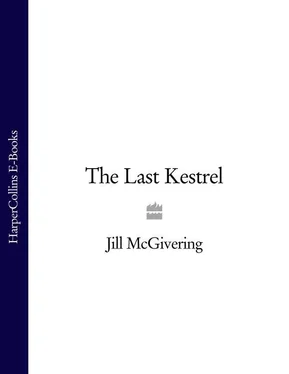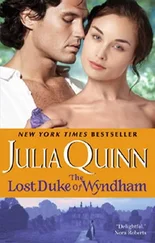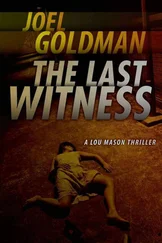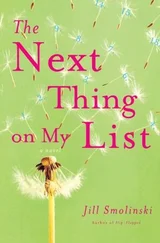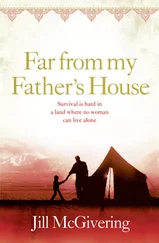1 ...7 8 9 11 12 13 ...16 As she finally approached the market, she quickened her pace. The stalls were spilling out along both sides of the dirt road and deep into the land behind it. She looked over the hawkers. That was someone she recognized, that farmer. Over there, another. Regulars from a nearby village. She’d bought from them since they were boys. Baskets woven by their wives. Clay pots. Vegetables and fruit. They were seated silently on the edge of the large cloths they’d rolled out over the dirt. Something about their stillness made her uneasy.
She walked further, past a fat row of dented trucks. The metalwork flashed with sunlight. More outsiders. Vegetables gave way to bales of used garments and second-hand shoes, hillocks of garish foreign plastic, buckets and bowls. The old men and boys who sat with these goods, cross-legged, their feet bare, were strangers.
Her head was starting to ache. A volley of cries from crackling loud-hailers. Cages of chickens squawked and clawed. Young men were cooking up snacks in pots, flipping them with flattened knives. The smell of frying oil hung heavy in the air. How Aref loved oily snacks when he was a child. What would those boys with guns give him to eat today?
A young boy, weighed down by a bulging bag, came running towards her. He stuck to her side, brandishing a plastic bottle of juice. He pushed it in her face, urging her to buy. She swatted him away. Across the road, a group of young men skidded to a halt on motorbikes, kicking up dust. They wore dark glasses and faded foreign T-shirts, cotton scarves tied loosely round their necks. They were whooping and showing off. They called out insults to a passing group of mothers and daughters. The young women pulled their scarves more closely round their faces. Hasina hesitated.
A sudden movement caught her eye, down beyond the market, towards Nayullah. There were men in the road, waving their arms and flagging down vehicles. The sun glinted on metal at their chests. She screened her eyes to look. Guns.
They were Afghans, not foreigners. They wore shabby uniforms, bunched in folds at the waist. There was a barrier in the road. They were stopping passing vehicles, forcing them to pull in to the side and be searched. At that moment, a motorbike came roaring through, two young men clinging to the seat. Behind it a battered pickup truck, open at the back like a farmer’s vehicle, was forced to a halt. Were the men in uniform asking the drivers for money? Who were they? She frowned. This was something new. It unsettled her.
She turned in from the street and picked her way down the narrow mud aisles between the stalls. The clamour flowed over her. Last time she was here, she’d bought boots for Aref. He’d be wearing those boots now. She looked round, trying to get her bearings. The second-hand shoe stall had gone. Everything looked different. The stalls seemed brasher, the shouting stallholders more aggressive. Other shoppers barged and jostled her, as some pressed their way forward, others forced their way past. Every time someone stopped to examine the goods, crouching down to turn over in their hands a plastic sandal or cotton scarf, they became a rock in the stream, damming up the crowd behind them.
Hasina began to feel light-headed with the noise, the heat and her lack of sleep. Through the crowd, she saw a face she recognized. A fruit-seller. An old man from a village near town. She pushed her way towards him.
‘May Allah bless and protect you,’ she said to him. ‘And all your family.’
‘And may He also bless and protect yours.’ He got to his feet, pushed his toes into his sandals. His cap was dusty. He moved to the side, clearing a small space at the side of his stall so she could step in from the thoroughfare.
‘So busy today,’ she said. She wiped her face with her shawl.
‘Yes, so many people.’ He gestured to her to sit, then turned from her to his goods. He had arranged a display of oranges in a carefully balanced pyramid, small misshapen pieces of fruit, picked too early in the season. He spent time choosing one, then sliced it open over the earth with his knife and handed her a piece to suck. The sweetness of the juice made her heady. He settled down, cross-legged, beside her, and smiled as he watched her eat, showing, through his grey beard, black stumps of teeth.
She sucked on the orange, pulling her scarf forward round her face. In front of them, the crowd streamed past. ‘How is business?’
The old man spread his hands. Hasina saw the bulging veins running along their backs. ‘Like this, like that,’ he said. ‘When the rains come, then it will be better.’
‘Yes, let’s pray for rain soon.’
They nodded. The fat man at the next stall began to shout through a loud-hailer, urging passers-by to stop and look. The rich smell of the orange cut into the stale sweat all around her.
‘I’ve never seen so many vehicles,’ she said.
The old man scowled. ‘And those new police, you saw them?’ He wagged his finger at her. ‘Thugs. The foreigners give them guns.’
Hasina felt the orange thicken in her throat. The policemen’s guns must be good then. Better than the country-made weapons of the fighters. She threw the orange peel behind her onto the ground, wiped her sticky fingers on her scarf.
‘So much trouble.’ She looked round. No one was close enough to hear. ‘More killing in town, I hear.’
The old man raised his hands to the sky. ‘Every day.’
They sat with their heads close, whispering in each other’s ears in the midst of the hubbub, as if they were sheltering together under a tree in a violent storm.
‘The foreign soldiers have built a camp in the desert,’ he said. ‘Just a few miles outside Nayullah. They’re trying to shake out all the…’ He paused, hesitating as he chose his word. ‘…the fighters.’
She nodded. ‘I heard.’
‘Every day they drive through the streets, big guns pointing everywhere, shouting at us all.’ He shook his head. ‘The children throw stones. Everyone’s afraid.’ He coughed, spat to the side.
‘First the Russians, now the Americans,’ Hasina said. ‘When will they leave us in peace?’
The old man tutted agreement. ‘Today, even people from town have walked out here.’ He paused, gestured about him with an outstretched arm. ‘People are frightened to go to market in town in case the foreigners come. How many are being killed?’ He lowered his voice to a murmur. ‘Killed or just disappeared.’
Hasina closed her eyes. She felt the ground beneath her sway and put her hand to her face. Her fingers, close to her nose, stank of orange. When she opened her eyes again, the old man was looking at her with concern.
She swallowed hard. ‘Will we ever see peace?’
‘We chased off the Russians. But it cost a lot of blood.’ He paused, looked away into the blur of the crowd. ‘All the bombing. My old body doesn’t matter. But the young people, the children…’ He sighed.
A passer-by stopped to examine the oranges. The old man got to his feet and invited him to taste one. The man walked on without speaking. The old man settled back. ‘These people,’ he said. ‘No manners.’
His expression suddenly lightened as he remembered something. He reached in his pocket to pull out a grimy photograph. A cheap studio portrait, creased with wear. It showed a couple, uncomfortable in new clothes, posing stiffly with an infant. ‘See,’ he said. His face shone with pride. ‘I have a grandson now. Finally! After so many years of just girls. Praise be to Allah!’
‘What a blessing,’ she said. ‘I’ll pray he grows up safe and healthy.’
She got to her feet.
‘Pray he grows up safe,’ he whispered. ‘And not speaking American.’
She bought spices and, at a hardware stall, bargained for a stout cooking pot. She started back along the road. The cries from the market stalls were garish in her ears. Her hand steadied the pot on her head. The young boy, hawking his local juice, ran up again as soon as he saw her, pushing the bottles in her face. She fended him off with her free hand.
Читать дальше
